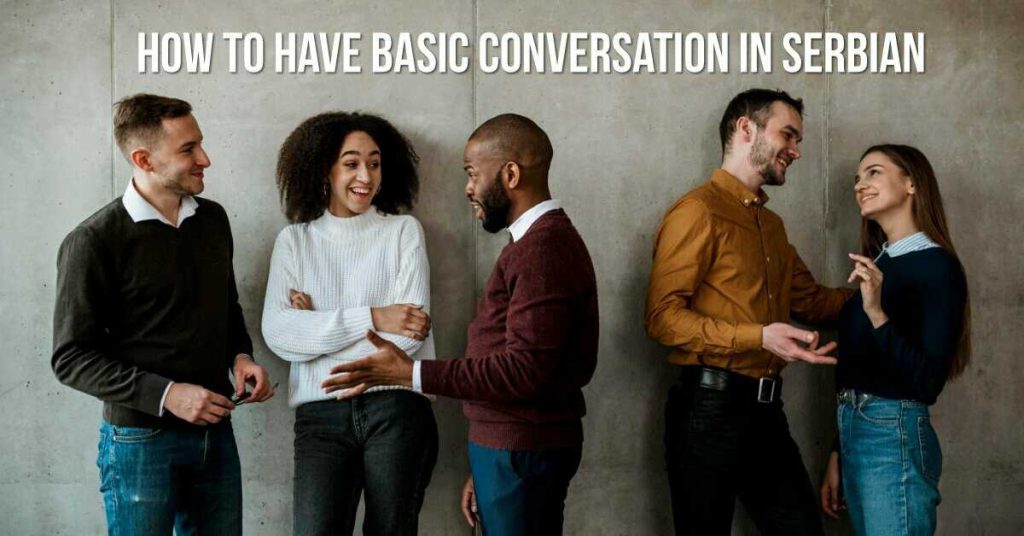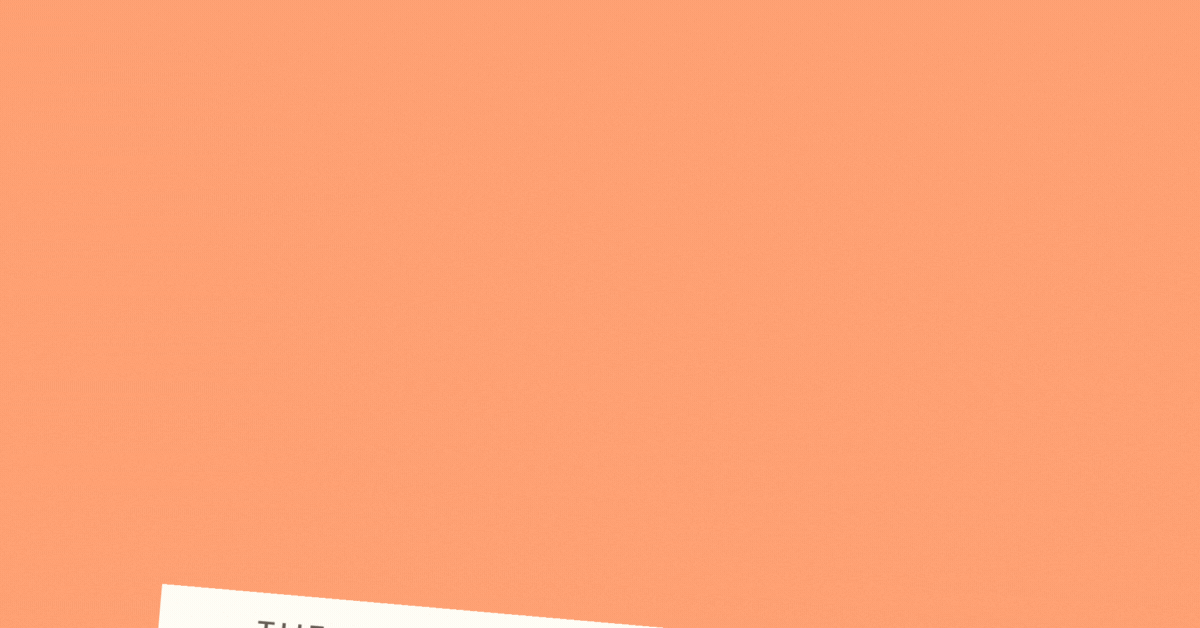Now let’s talk about how to have a basic conversation in Serbian. I know that learning a foreign language can be “a scary experience,” and you might feel like you’re not willing to learn or you’ll never be able to learn how to speak it. However, I suppose you might be wrong.
Don’t worry, I’ll help you solve this “problem,” and I’ll guide you through this beautiful and exciting language trip.
In this blog post, I will try to teach you how to introduce yourself and simple words and phrases like yes, no, excuse me, and I don’t understand. Learn these, and you’ll be ready to have short conversations in the Serbian language.
Basic Conversation In Serbian
| Serbian Cyrillic / Latin | Pronunciation | English translation |
| да / da | dah | yes |
| не / ne | neh | no |
| молим / molim | moh-leem | please |
| хвала / hvala | hvah-lah | thank you |
| хвала пуно / hvala puno | hvah-lah poo-noh | thank you very much |
| хвала / hvala | hvah-lah | thanks |
| нема на чему /nema na čemu | neh-nah nah cheh-moo | you’re welcome |
| Извињавам се! / Izvinjavam se! | Ee-zvee-nyah-vahm seh | Excuse me! |
Communication
| Serbian Cyrillic / Latin | Pronunciation | English Translation |
| Разумем. / Razumem. | rah-zoo-mehm | I understand. |
| Не разумем. / Ne razumem. | neh rah-zoo-mehm | I don’t understand. |
| Хало? Halo? | hah-loh? | Hello? (on the phone) |
| Молим? / Molim? | moh-leem? | I beg your pardon? |
| Шта то значи? / Šta to znači? | shtah toh znah-hcee? | What does that mean? |
| Не знам. / Ne znam. | neh znahm | I don’t know. |
| Ја не говорим пољски. / Ja ne govorim poljski. | jah neh goh-voh-reem poh-lyskee | I don’t speak Polish. |
| Знам мало пољског. /Znam malo poljskog. | zhahm mah-loh poh-lys-kohg | I speak a little Polish. |
| Да ли говориш енглески? / Da li govoriš engleski? | dah lee goh-voh-reesh eng-leh-skee? | Do you speak English? (informal) |
| Да ли говорите енглески? / Da li govorite engleski? | dah lee goh-voh-ree-teh eng-leh-skee? | Do you speak English? (formal) |
| Да, знам да говорим енглески. / Da, znam da govorim engleski. | dah, znahm da goh-voh-reem eng-leh-skee | Yes, I do speak English. |
| Не, не знам да говорим енглески. Ne, ne znam da govorim pričati engleski. | neh, neh znahm da goh-voh-reem eng-leh-skee | No, I don’t speak English. |
Making Аcquaintances
| Serbian Cyrillic / Latin | Pronunciation | English Translation |
| Молим Вас, причајтe спорије! /Molim Vas, pričajte sporije! | Moh-lem vahs, pree-chay-spoh-re-jeh! | Please talk more slowly! |
| Молим те, причај спорије! /Molim te, pričaj sporije! | Moh-lem teh, pree-chay-spoh-re-jeh! | Please talk more slowly! |
| Драго ми је да смо се упознали! /Drago mi je da smo se upoznali! | drah-goh mee yeh dah smoh seh oopoh-znah-lee! | Nice to meet you! |
| Како сте? / Kako ste? | kah-koh steh? | How are you? (formal) |
| Како си? / Kako si? | koah-koh see? | How are you? (informal) |
| Добро сам, хвала! / Dobro sam, hvala! | doh-broh sahm, hvah-lah! | I’m well, thank you! |
| Добро, хвала на питању! / Dobro, hvala na pitanju! | doh-broh, hvah-lah nah pee-tah-nyoo! | Good, thanks for aking! |
| Није лоше, хвала! / Nije loše, hvala! | nee-yeh loh-sheh, hvah-lah! | Not bad, thanks! |
| веома лоше / veoma loše | veh-onah loh-se-heh | very bad |
| Како се зовеш? /Kako se zoveš? | kah-koh seh zoh-vesh? | What’s your name? |
| Зовем се […]. / Zovem se […]. | zoh-vehm se […] | My name is […]. |
| Коje је ваше име? /Kako je vaše ime? | kah-koh jeh vah-sheh ee-meh | What’s your first name? |
| Моје име је […]. /Moje ime je […]. | moh-yeh ee-meh jeh […] | My first name is […] |
| Колико имаш година? / Koliko imaš godina? | koh-lee-koh ee-mah-sh goh-dee-nah? | How old are you? (informal) |
| Колико имате година? / Koliko imate godina? | koh-lee-koh ee-mah-teh goh-dee-nah? | How old are you? (formal) |
| Ја имам […] година. / Ja imam […] godina. | yah eem-ahm […] goh-dee-nah | I’m […] years old. |
| Који су твоји хобији? / Koji su tvoji hobiji? | Koh-yee soo tvoh-jee hoh-bee-yee? | What are your hobbies? |
| Шта волиш да радиш? / Šta voliš da radiš? | shtah-voh-leesh dah rah-deesh? | What do you like doing? |
| Шта волите да радите? / Šta volite da radite? | shtah-voh-lee-teh dah rah-dee-teh? | What do you like doing? |
| Шта (тренутно) радиш? / Šta (trenutno) radiš? | shtah-treh-noot-noh rah-deesh? | What are you doing (at the moment)? |
| Шта (тренутно) радите? / Šta (trenutno) radite? | shtah-treh-noot-noh rah-dee-teh? | What are you doing (at the moment)? |
| Где живиш? / Gde živiš?Где станујеш? / Gde stanuješ? | gdeh zh-ee-veesh?gdeh stah-noo-yesh? | Where do you live? |
| Где живите? / Gde živite?Где станујете? / Gde stanujete? | gdeh zh-ee-vee-teh?gdeh stah-noo-yeteh? | Where do you live? |
| Живим у […]. / Živim u […]. | zhee-veem oo | I live in […]. |
| Ја сам из Енглеске. / Ja sam iz Engleske. | jah sahm eez ehn-gleh-skeh | I’m from England |
| Ја сам Американац. /Ja sam Amerikanac. | jah sahm ah-meh-ree-cah-natc | I’m American. |
Why Is It A Good Idea To Learn The Serbian Language?
There are many reasons, but I am going to give you some of them:
- Serbian is spoken in Serbia, Bosnia and Herzegovina, Croatia, Macedonia, Slovenia, Montenegro, in Romania (some places), in Hungary (some parts) in many places in Vienna, in Greece (some parts), etc., so it is always good to know for a bit, so you can communicate with Serbs and impress them.
- Because of people – They are friendly, open-minded, communicative, optimistic, and we do our best so the foreign people can feel comfortable. We are almost always at their disposal.
- Because of culture, — We have many famous scientists: Nikola Tesla, Josif Pančić, etc. Writers: Jovan Jovanović Zmaj, Ivo Andrić, Mika Antić, etc.; Sportsmen: we are great at water polo, tennis, basketball, volleyball, etc.
- Because of the music – We have great musicians. The best proof for that is that Marija Šerifović won in 2007 on the Eurovision Song Contest with the song „Molitva“ and Željko Joksimović took 2nd place with the song „Lane moje.”
- Because it opens you to a whole world of languages – Serbian uses two alphabets… Cyrillic can help you with other Slavic languages (Russian, Ukrainian, etc.) and Latin (that is used much more nowadays). Still, you have a significant advantage: We read just like we write, and every letter represents only one voice. You can see them here. If you learn Serbian, you will automatically know: Bosnian, Croatian, Montenegrin as well since languages are similar pretty much, and every Serb knows the languages that I mentioned.
Learning new languages is so contagious. Once you start to learn a foreign language, you cannot stop doing that, especially if you do it in an exciting and fun way with exciting people that are able to help you. That is why you should consider using Ling App and learn Serbian like a boss. This excellent app can help you learn things like body and health vocabulary or express emotions in Serbian.




































































